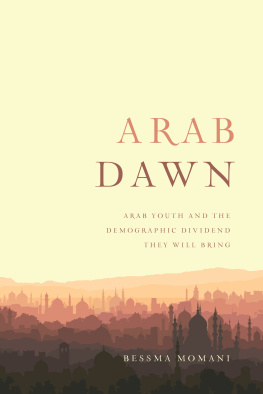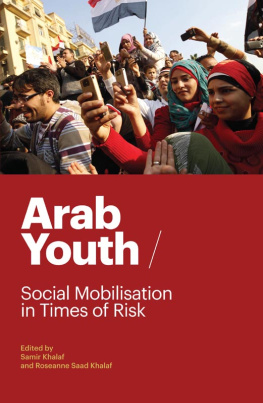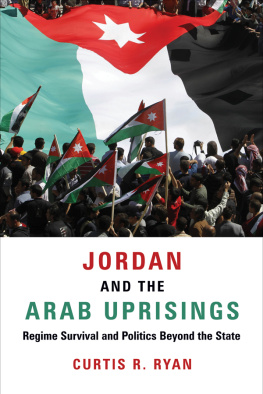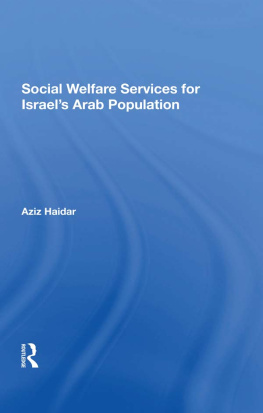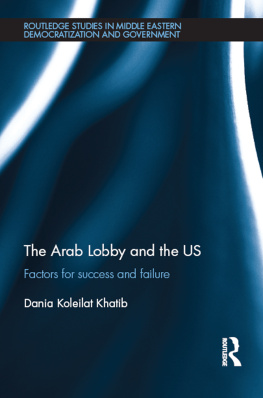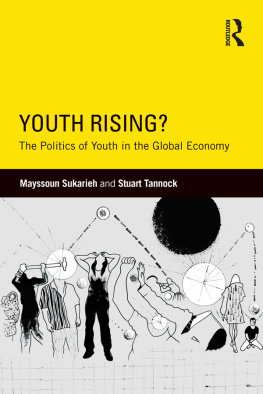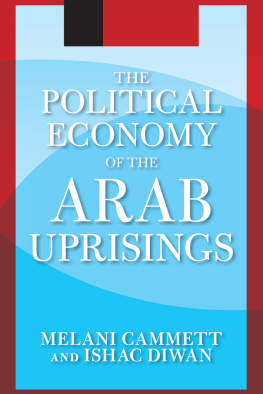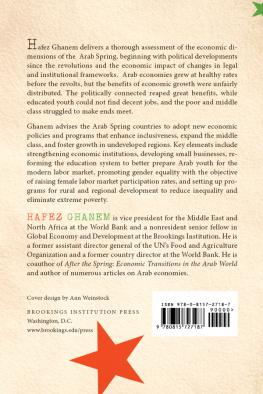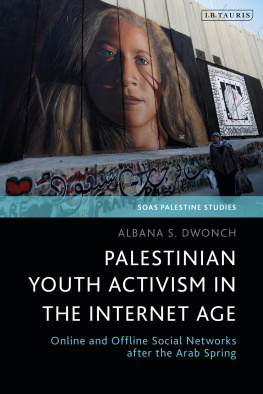chapter one
Introduction
In the West, the Arab region of the Middle East and North Africa is all too often associated with terrorism, religious fanaticism, intolerance, sexism, racism, and a myriad other social and political ills. As a frequent traveller to many of these countries, I get all of the curious questions from border security people in the West. I tell them I am both a professor studying the Arab region and a tourist visiting family and friends there. On many occasions this response is met with bewilderment, and sometimes a hint of disdain. Once, as I transited through Londons Heathrow Airport after a trip to the region, the man at the counter declared what most border services people politely refrain from saying: Madam, you have all of the wrong stamps in your passport. It is my hope that this book will disprove him and others for whom little more than violence and turmoil come to mind when they think of the Middle East or the Arab world.
For those looking for a book that validates their anxieties and misgivings about the Arab region, this is not it. I do not dismiss the real security challenges the region poses, or its vital geostrategic role in international politics. But there is no shortage of books on why and how the Arab region is a security challenge and a hotbed of radical religious views, and it is not my intention, here or anywhere, to add to that list.
For the cover of my first book on the Middle East a volume about diplomatic relations with the region and having little to do with violence and insecurity my publisher proposed an image of barbed wire and military men standing in the background, which the marketing representative assured me would offer a mental shortcut for readers. Theyll know this is a book about the Middle East. She might have been right about the perception many people have about the region, but the image is all wrong, and a constant reminder to me of the myopic vision we in the West have of the Arab world.
There is much to be concerned about in the Middle East and North Africa, a region undergoing dramatic change in many ways the Arab Spring was just the beginning of the transformation. Too often, however, the Arab region is written about as a glass half-empty, and one that is draining at that. This book is about the other half of the glass: a young region full of hope, ready for progress, and eager for a bright and prosperous future. Undoubtedly some will criticize this characterization as naive or anecdotal, that I picked only the good stories and the helpful data. But my grandmother taught me a great Arabic proverb that is the core of why this book has value: Add a hair to another hair, and you eventually get a beard. Sometimes we need to note the regions positive stories, anecdotal events, and initiatives, because something more is taking shape a story interwoven and held strong by many different strands.
As an academic, I do not expect my findings and stories to reveal any definitive conclusions about the future of the Arab region. I also do not want to sugarcoat the structural challenges that underpin it: real problems are hindering the regions efforts to move forward, and in the conclusion I suggest policies that need to be implemented if it is to realize its potential. I am also not attempting to meet the social scientists gold standard of a tight methodological study: reading Paul Krugman has taught me that, unless academics put aside their tendency to want to prove a thesis beyond a shadow of a doubt, we can never be relevant and influential public intellectuals. So, here I put aside the academic impulse to support and confirm theory, and showcase the young people I have met in the Arab region who give me such great hope for its future.
To hear their voices, I conducted in-country focus groups in Morocco, Egypt, and Jordan, and with students from Saudi Arabia, Syria, and Qatar who were in Canada temporarily. I also attended conferences and meetings on the challenges facing youth in the United Arab Emirates (UAE). As well, I interviewed university students from Morocco, Egypt, Jordan, Syria, Lebanon, Saudi Arabia, and the UAE either in the region, via Skype, or at global conferences and meetings. So as not to succumb to a selection bias, I also attempted to speak to youth from rural, poorer, and underfranchised communities, and to those who lacked postsecondary education. Some interviews were impromptu meetings with young people in malls, train stations, and lots of taxis and buses. My preferred comfort zone would have been to speak to them in a Starbucks, but I tried to approach young people in all sorts of places and from all walks of life to obtain a well-rounded perspective of their thoughts and aspirations. I was frankly surprised that, despite their differences, youth from across the socio-economic and educational attainment spectrum often shared much of the same outlook. To broaden the readers perspective of the region and to provide a sense of how Arab youth think and feel about life there, I complement these stories with the results of surveys conducted by academics and policy institutes. Of course, I acknowledge the reality that attitudinal change does not necessarily lead to fundamental political change.

